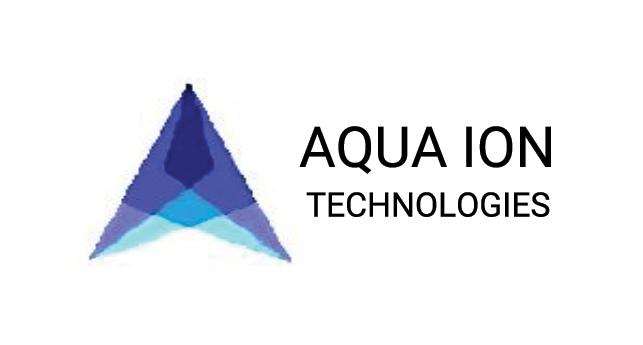Water is a fundamental resource for life, essential for drinking, cooking, cleaning, and various industrial processes. However, water quality can be compromised by contaminants, posing serious risks to health and safety. Regular water testing is a crucial practice that helps identify potential hazards, ensure compliance with safety standards, and protect public health.
In this blog, we will explore the importance of regular water testing, the types of contaminants it can detect, and how it contributes to safety and well-being. Whether you are a homeowner, business owner, or community leader, understanding the value of water testing can help you make informed decisions about water quality management.
The Importance of Regular Water Testing
1. Ensuring Safe Drinking Water
Why It Matters: Contaminated drinking water can cause a range of health issues, from gastrointestinal illnesses to long-term chronic conditions.
How Water Testing Helps:
- Identifies harmful pathogens, such as bacteria and viruses.
- Detects chemical contaminants, including heavy metals and pesticides.
- Ensures that water meets safety standards set by regulatory authorities.
2. Protecting Public Health
Why It Matters: Waterborne diseases can spread rapidly, affecting entire communities.
How Water Testing Helps:
- Prevents outbreaks of waterborne illnesses by identifying contamination early.
- Provides data for public health interventions and awareness campaigns.
- Builds trust in public water systems and bottled water products.
3. Safeguarding Industrial Processes
Why It Matters: Industries rely on high-quality water for manufacturing, cooling, and other processes. Contaminated water can damage equipment, affect product quality, and pose safety risks.
How Water Testing Helps:
- Ensures that water used in industrial processes meets quality standards.
- Prevents equipment corrosion and scaling caused by impurities.
- Reduces the risk of product recalls and regulatory penalties.
4. Supporting Environmental Conservation
Why It Matters: Contaminated water can harm ecosystems, affecting aquatic life and biodiversity.
How Water Testing Helps:
- Monitors the impact of industrial discharge and agricultural runoff on water bodies.
- Identifies sources of pollution and supports remediation efforts.
- Promotes sustainable water management practices.
5. Compliance with Regulations
Why It Matters: Regulatory authorities set strict standards for water quality to protect public health and the environment.
How Water Testing Helps:
- Ensures compliance with local, national, and international water quality regulations.
- Provides documentation for regulatory audits and inspections.
- Reduces the risk of legal penalties and reputational damage.
Types of Contaminants Detected by Water Testing
1. Microbial Contaminants
- Examples: Bacteria (E. coli), viruses, and parasites.
- Health Risks: Gastrointestinal illnesses, infections, and waterborne diseases.
2. Chemical Contaminants
- Examples: Heavy metals (lead, arsenic), pesticides, and industrial chemicals.
- Health Risks: Chronic health conditions, such as cancer and neurological disorders.
3. Physical Contaminants
- Examples: Sediment, dirt, and organic matter.
- Health Risks: Generally non-toxic but can affect water clarity and taste.
4. Radiological Contaminants
- Examples: Radon and uranium.
- Health Risks: Increased risk of cancer and other radiation-related illnesses.
How Often Should Water Testing Be Conducted?
The frequency of water testing depends on several factors, including the water source, usage, and potential risks. Here are some general guidelines:
1. Residential Water Systems
- Private Wells: Test annually for bacteria, nitrates, and other contaminants.
- Municipal Water: Test if you notice changes in taste, odor, or appearance, or if there is a known contamination issue.
2. Commercial and Industrial Facilities
- Regular Testing: Conduct routine testing based on industry standards and regulatory requirements.
- Event-Based Testing: Test after significant changes in water source or treatment processes.
3. Public Water Systems
- Routine Monitoring: Test regularly as mandated by regulatory authorities.
- Emergency Testing: Test in response to contamination incidents or public health concerns.
The Role of Professional Water Testing Services
While DIY water testing kits are available, professional water testing services offer several advantages:
- Accuracy: Advanced laboratory techniques provide precise and reliable results.
- Comprehensive Analysis: Professionals can test for a wide range of contaminants.
- Expert Interpretation: Trained technicians can explain the results and recommend appropriate actions.
Companies like Arkey Enviro Care Technology provide expert water testing services, ensuring that clients receive accurate and actionable information about their water quality.
Conclusion
Regular water testing is essential for ensuring safety, protecting public health, and supporting environmental conservation. By identifying contaminants and addressing potential risks, water testing helps maintain the quality and reliability of water supplies.
Whether you are a homeowner, business owner, or community leader, prioritizing regular water testing is a proactive step toward safeguarding health and well-being. Partnering with trusted professionals like Arkey Enviro Care Technology ensures that your water testing needs are met with expertise and precision.
Contact Arkey Enviro Care Technology
Head Office: #99, Perumal Kovil Street, Gerugambakkam, Chennai, 600 128
Phone: +919840096588, +91 90879 10655, +91 99520 20155
Email: info@arkeyenviro.com
Branch Office: #326/4, Mullaistreet, EzhilNagar, Thiruverumbur, Trichy, -620 014
By prioritizing regular water testing, we can ensure access to clean, safe water and protect the health of our communities. Let’s work together to create a safer and healthier future for all.


























